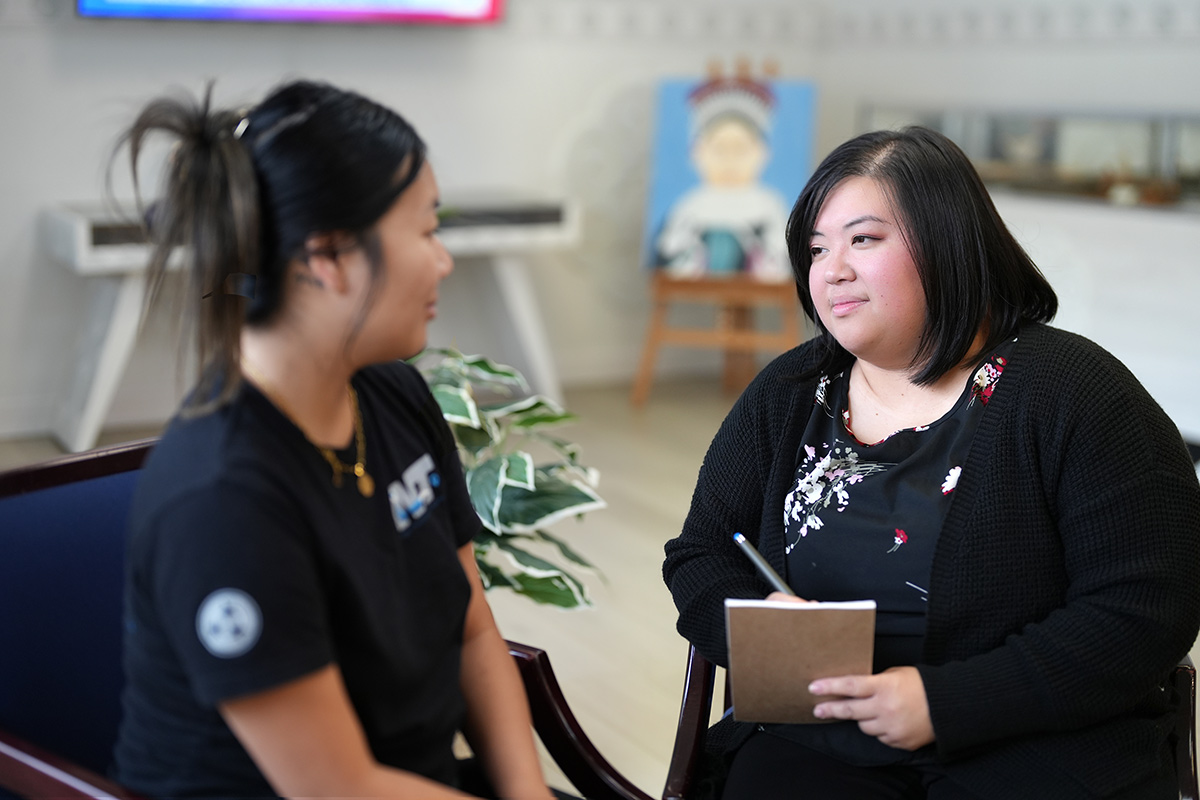
The first wealth is health.
Ralph Waldo Emerson famously penned that saying more than 160 years ago. But far too many people in our community still face systemic barriers and uneven access to opportunity for better health and well-being.
The Greater Milwaukee Foundation is bringing resources and partners together to address health equity at both a systems level and grassroots level, so it is more fair and just for everyone.
Through a place-based, community-driven approach called the ThriveOn Collaboration, a partnership with the Medical College of Wisconsin and Royal Capital, the Foundation is investing in the health, educational and economic well-being of people in the neighborhoods adjacent to the collaboration’s home, ThriveOn King. The majority of area residents are Black, a population disproportionately affected by health disparities due to systemic racism. Among its interrelated priorities, the collaboration aims to invest in access to health and wellness programs, healthy food options and health research to help residents overcome those barriers to their overall wellness.
Several tenants at ThriveOn King — where the Foundation will move to in early 2024 — will address health disparities head on. Versiti Blood Center of Wisconsin will provide education, job skill training and a blood donation center. Several MCW programs will have dedicated space in the building as well, including the Center for Advancing Population Science. The department is led by Leonard Egede, a nationally renowned researcher who is MCW’s inaugural endowed chair in health equity research. Several Black philanthropists in greater Milwaukee, many of them Foundation donors, raised $2 million to support his work, which focuses on developing and testing innovative interventions to reduce and/or eliminate health disparities related to race/ethnicity, socioeconomic status and geographic location for chronic medical and mental health conditions.
Unprecedented approach garners support
With its innovative model, the collaboration has attracted investments from Foundation donors and community members. Its focus on helping the underserved aligned well with Badger Meter Foundation’s vision. Over the years, the private foundation has supported education, health care and organizations that help people with special needs. In 2022, for example, it made grants to Versiti, Audio & Braille Literacy Enhancement and Hunger Task Force.
The private foundation made a gift to the Foundation’s Greater Together Campaign in support of the ThriveOn Collaboration Fund and in 2022 turned its assets over to the Foundation to become a donor advised fund. The Foundation was a good fit because of its history in the community and its familiarity among board members, Dix said. Several Badger Meter leaders were part of the Foundation Board or knew its leaders. For example, the late James Wright, who led Badger Meter and its foundation, served 14 years on the Foundation’s Board.
“They’ve got the expertise to see the big picture,” said Dix about the Foundation.
Following community voice for greater impact
Having an impact on the big picture includes addressing health equity at a grassroots level by listening to and supporting the needs of organizations such as the Hmong American Friendship Association. Southeast Asian refugees who fled to Wisconsin from places such as Laos, Myanmar and Thailand have turned to the nonprofit since 1983 to bridge language and cultural barriers so they can access housing, education and employment.
Accessing and understanding the health care system has been just as critical. Refugees with limited to no English proficiency cannot communicate well with doctors and nurses. While some might have family members who speak English, oftentimes they may not accurately interpret the medical information or cannot translate or interpret the language the patients speak.
The Foundation has provided a couple of grants in recent years to support HAFA’s medical interpretation program.
“If you don’t speak the language, if you don’t understand the health care system, it’s very hard to navigate,” said Pang Kou Yang, a project coordinator with HAFA.
That is where people such as Lang Xiong come in. Xiong speaks five languages and is one of HAFA’s interpreters. He vividly remembers the need for interpretation and translation services when he first came to Milwaukee 40-plus years ago. There were only 50 Hmong families at the time, and HAFA was one of only two organizations that served refugees.
Though everyone on HAFA’s 10-member staff is bilingual, they cannot keep up with the need. Also, Lang has found over the years that some Southeast Asian women do not feel comfortable with a male interpreter. In those instances, he has either had to stay behind a curtain or door or leave.
A recent Foundation grant helped HAFA hire a female interpreter to help women better access health care services. Of the roughly 500 clients HAFA serves each year through medical interpretation, 60 percent are women. The grant also is funding the training of seven Hmong women to become community health organizers. They will plan regular health education and screening events such as a women’s health fair.
From individual access to systems change, the Foundation’s cohesive approach to health equity is one even Emerson might have appreciated.